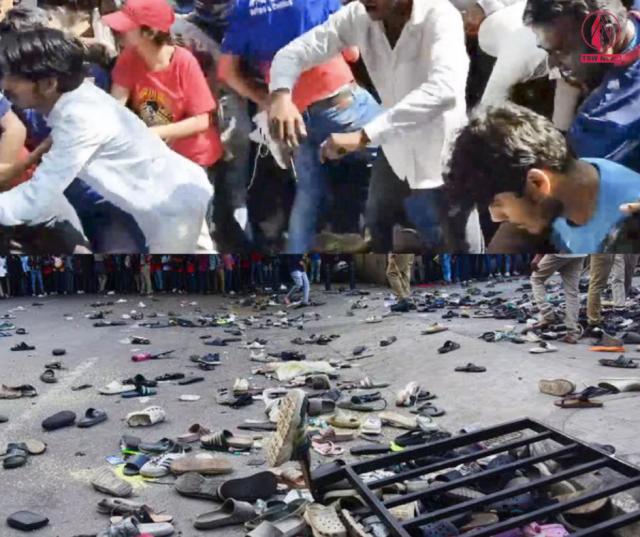Cleric Defends Mosque Remarks on Dimple Yadav Amid FIR, Political Uproar
- Posted on July 28, 2025
- Trending News
- By Arijit Dutta
- 111 Views
Cleric Sajid Rashidi defended his controversial comments on SP MP Dimple Yadav’s mosque visit, citing Islamic traditions. An FIR was lodged against him for inflammatory remarks. Rashidi claimed threats from party workers and plans legal action, while demanding Yadav apologise for "immodest" conduct. The incident sparked political and social backlash.

Maulana Sajid Rashidi, president of the All India Imam Association, defended his controversial remarks against Samajwadi Party MP Dimple Yadav, claiming his criticism was based on Islamic values and not personal animosity. Rashidi made headlines after objecting to the way Dimple Yadav sat during a recent visit to a mosque, triggering widespread condemnation and legal action.
An FIR was registered against Rashidi at Vibhuti Khand police station in Lucknow following a complaint that accused him of making derogatory and inflammatory comments that could incite communal tension. The complainant, Pravesh Yadav, alleged the cleric’s statements were not only misogynistic but also aimed at disturbing religious harmony.
Rashidi, however, insisted that his remarks were rooted in religious belief, not political intent. “Even if it had been a Muslim woman sitting that way, I would have objected. It’s about Islamic traditions, not about who the person is,” he said. He pointed to MP Iqra Hasan, who was seated beside Dimple, claiming she followed proper decorum, unlike Yadav.
The cleric further alleged he had received threats from Samajwadi Party workers and announced plans to file a police complaint against Dimple Yadav and party leader Akhilesh Yadav. “If Dimple apologises for violating Islamic customs, I too will apologise,” he added.
Also Read: Gunman Kills 6 at Bangkok Market in Latest Thailand Mass Shooting
Rashidi’s statements have sparked criticism from political and civil society groups, who accuse him of targeting a woman politician under the guise of religion. The matter continues to stir debate on religious norms, gender, and political discourse in public spaces.




